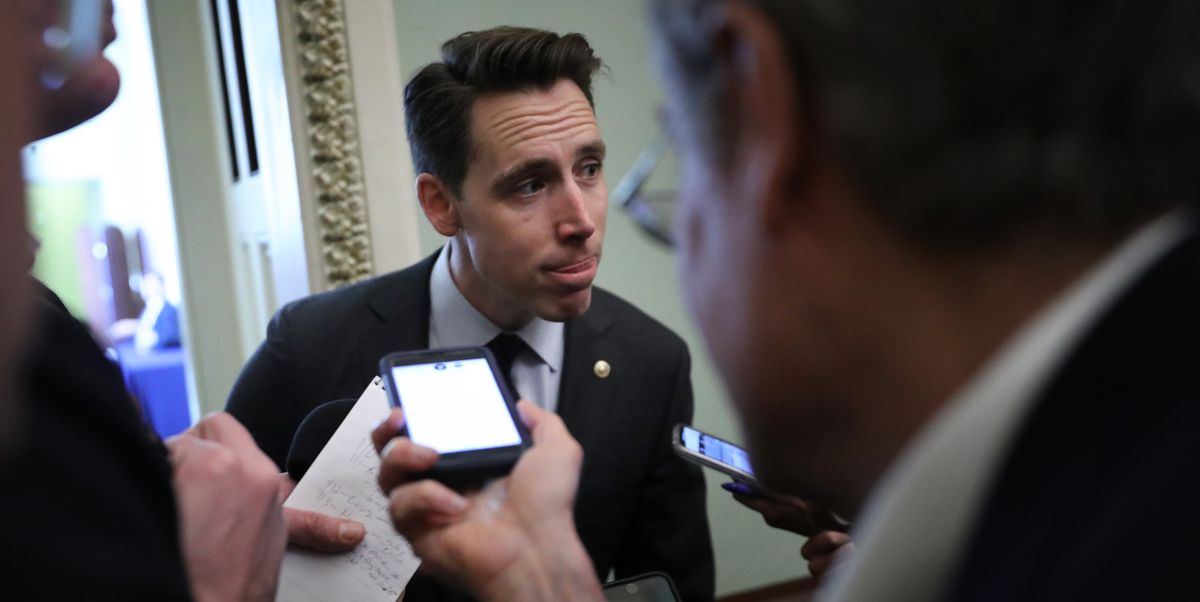Category Archives: Immigration
Republican Austerity and Deprivation Orthodoxy at Risk?

One of the most important developments of the phase one-phase two-phase three legislative vessels to mitigate the fallout from a botched executive branch containment of Coronavirus is the incredible breaking of GOP orthodoxy by key figures within the party. Specifically, Mitt Romney (R-UT), Josh Hawley (R-MO), and Marco Rubio (R-FL) each injected pragmatic, comprehensive, and fulsome ideas to a stale Senate caucus that under Mitch McConnell (R-KY) has prided itself on not solving national problems.
Since Ronald Reagan’s presidency, the GOP has primarily operated under three core precepts: 1) run government poorly to self-evidently prove to the public that government is a problem, thus increasing anti-government sentiment and absenteeism among voters 2) liquidate the state through tax expenditures, tax cuts, and somehow legal grift and self-dealing practices by politicians and 3) privatize or entirely remove as many socially gainful programs to increase the level of inequality in the public. All of these have contributed to Trump’s ascendance and yet, his administration continues to operate on all three tracts like any nominal Republican would execute. But importantly, the president, his supporters, and the media have fashioned Trump a populist like Andrew Jackson, which is starkly at odds with Reaganism.
Trump’s populism has always been social in nature, which in America often means demonizing racial and ethnic minorities, but if part of his ascension is the fiction of economic populism, than that seems to actually be reconstructed some of the ideological commitments within the party. Importantly, this is not because Trump gives a fuck about working families, but people like Tom Cotton (R-AR) and Hawley may want to create an actual basis to claim the party is economically populist. Until this pandemic, the only evidence of this was seen in Cotton and David Perdue’s (R-GA) immigration bill that would effectively ban poor people from entering the country for work. Trump’s xenophobia drives his interest in the immigration restrictions, but Cotton and Perdue (Cotton mainly) were using economic populist language for why the U.S. should restrict low-skill migration to the country: allowing the foreign working class to work in the U.S. allows local companies to pay less because of the workers’ tenuous legal status. This then displaces the wage levels for similarly situated domestic workers, forcing them into unemployment or accepting lower pay. Whether they are entirely genuine in their rhetorical shift and whether refugees and undocumented workers lower wages on a systemic level are both reasons to be skeptical of their approach. But the movement to fill in actual economic populism around the base of social populism does mean there are forces within the GOP that want to reconstruct the party to be worker-based–not just in symbols, but in policy. This occurring while the Democrats are increasingly suburban and managerial in their interest coalition–capped off my nominating Joe Biden to be their candidate against Trump–gives the GOP a real chance to be a majority governing coalition, similar to what Boris Johnson and the Conservative Party pulled off in the UK in 2019.
But moving beyond immigration was always difficult for the GOP and no other economic populist policies have emerged–even rhetorically–from party players since Trump has taken office. That was until the debate about the phase three package. The GOP wanted to bailout out corporations and and the Democrats wanted to boost unemployment benefits. This is the same symmetry that occurred in 2009 during the Great Recession. But in an odd historical twist, this outmoded and insufficient response was not enough for some Republican lawmakers.
First, Mitt Romney governing instincts kicked in when he proposed a direct payment of $1000 per adult to help Americans pay bills and buy food. Not to be outdone, ostensible “liberal” Kamala Harris proposed a $500 payment per family after Romney already went public. Second, while Nancy Pelosi (D-CA) dismissed direct payments in favor of beefing up unempoyment insurance provisions–which are good but not enough–Hawley recommended MONTHLY payments of at least $1500 for low-income and middle class families. And third, while Chuck Schumer was focused like a laser on making sure bailout money did not go directly to Trump’s businesses–which they obviously would not matter what safeguards go into the legislation–Marco Rubio worked with Ben Cardin (D-MD) to corral their caucuses to support a Paycheck Protection Program (PPP) similar to the ones that European nations like Denmark are using to keep payrolls intact and defray mass business closure and unemployment. While the payments to individuals were limited to a one-time $1200 dispensation and the UBI to families did not even make it to the amendment stage, all of these GOP recommended policies are improvements over the bipartisan corporate consensus. They optimistically point to a more varigated politics that can potentially create bipartisan solutions where current party leaders continue to rely on 1980s policy frameworks.
While I continue to view Hawley with suspicion over his radical far-right views on social issues and habit of endless pandering in committee hearings, any member of the GOP willing to prioritize actual economic support (other than tax cuts) for regular people is an incredible twist of events. Regardless of whether Romney thinks corporations as inherently virtuous or that Hawley looks like someone with constant bouts of pink eye, they both set the LEFT flank of the debate on the Senate phase three bill. And while Rubio will have to work very hard to not backslide into his neo-con, compulsive liar self, if he matures into an effective lawmaker that provides pragmatic solutions to economic problems, he might just become president one day.
If the left side of the Democratic coalition continues to push insurgent candidates into Congress and this new economic populist right decides they want to create a populist governing coalition, party be damned, then American politics may just get out of the endless elitist bent and partisan gridlock that typifies the Sixth Party System.